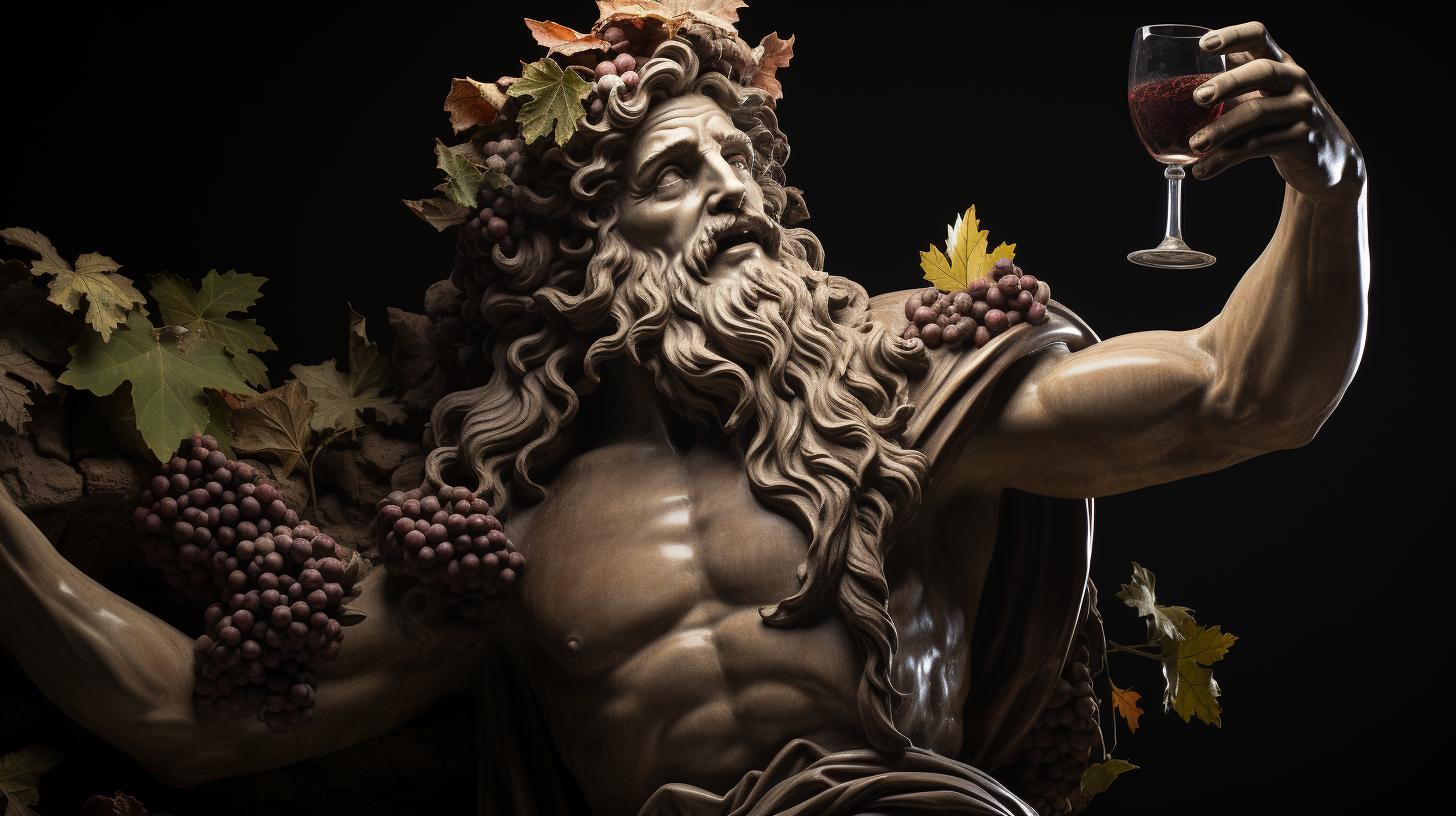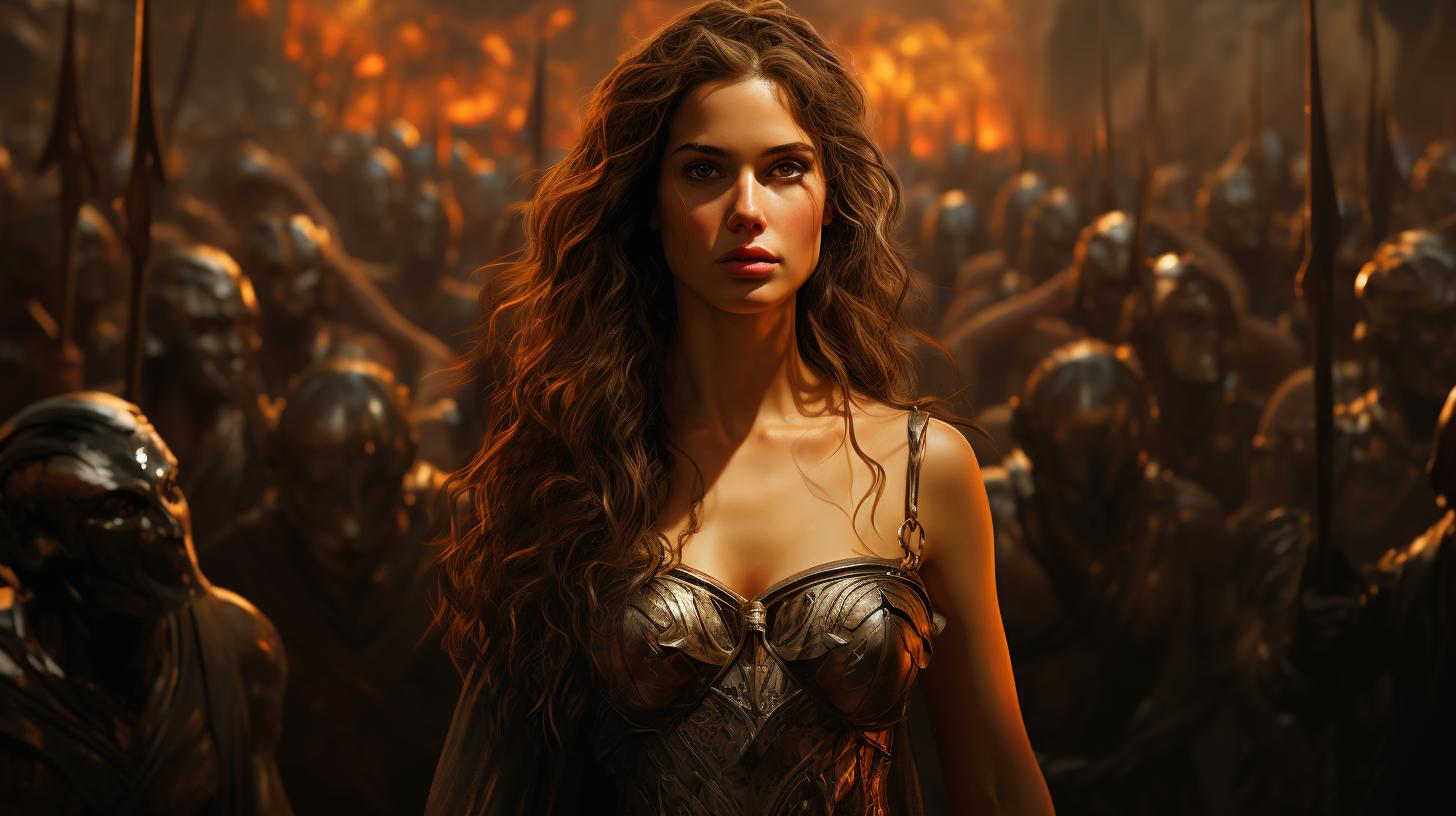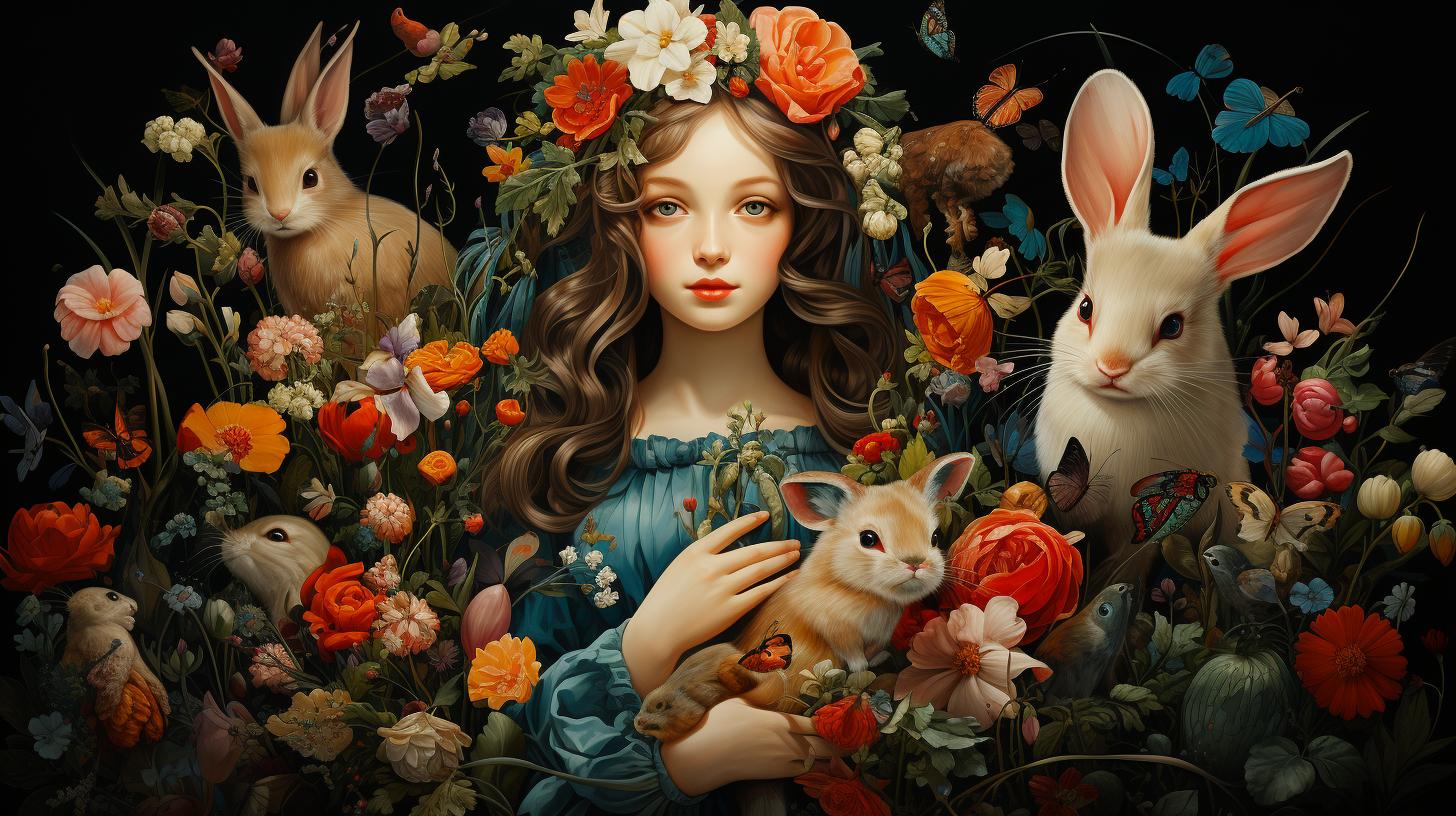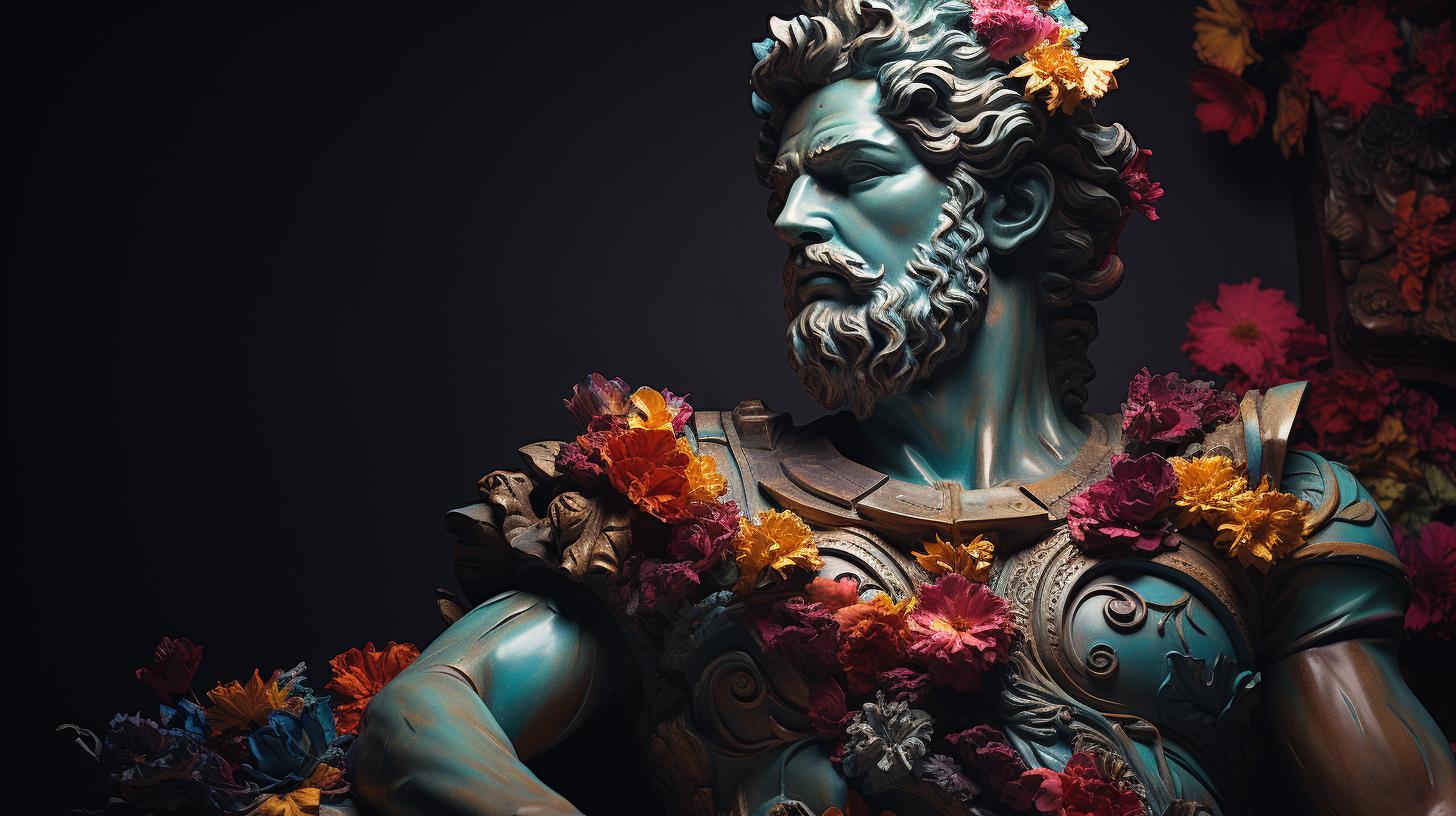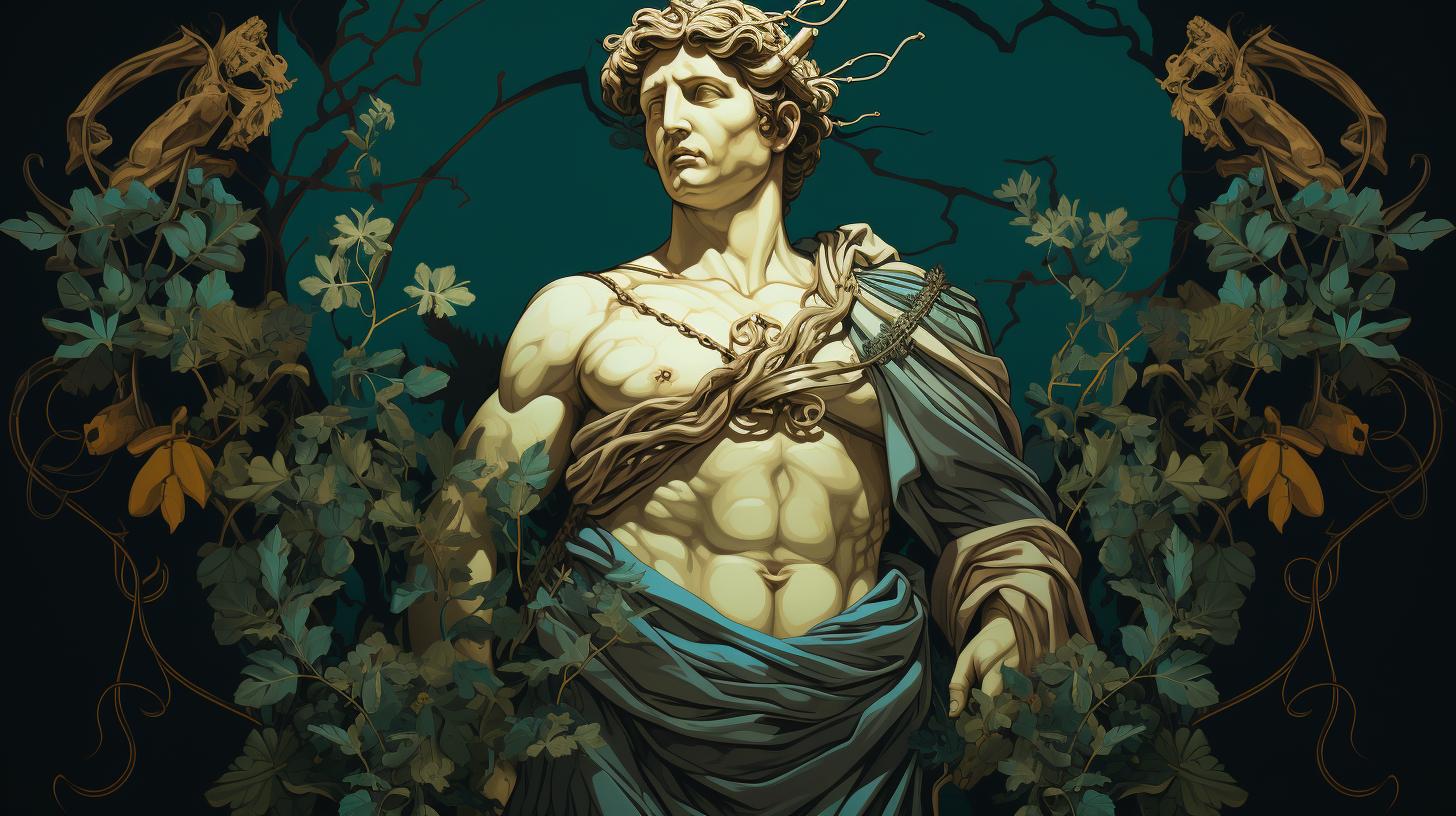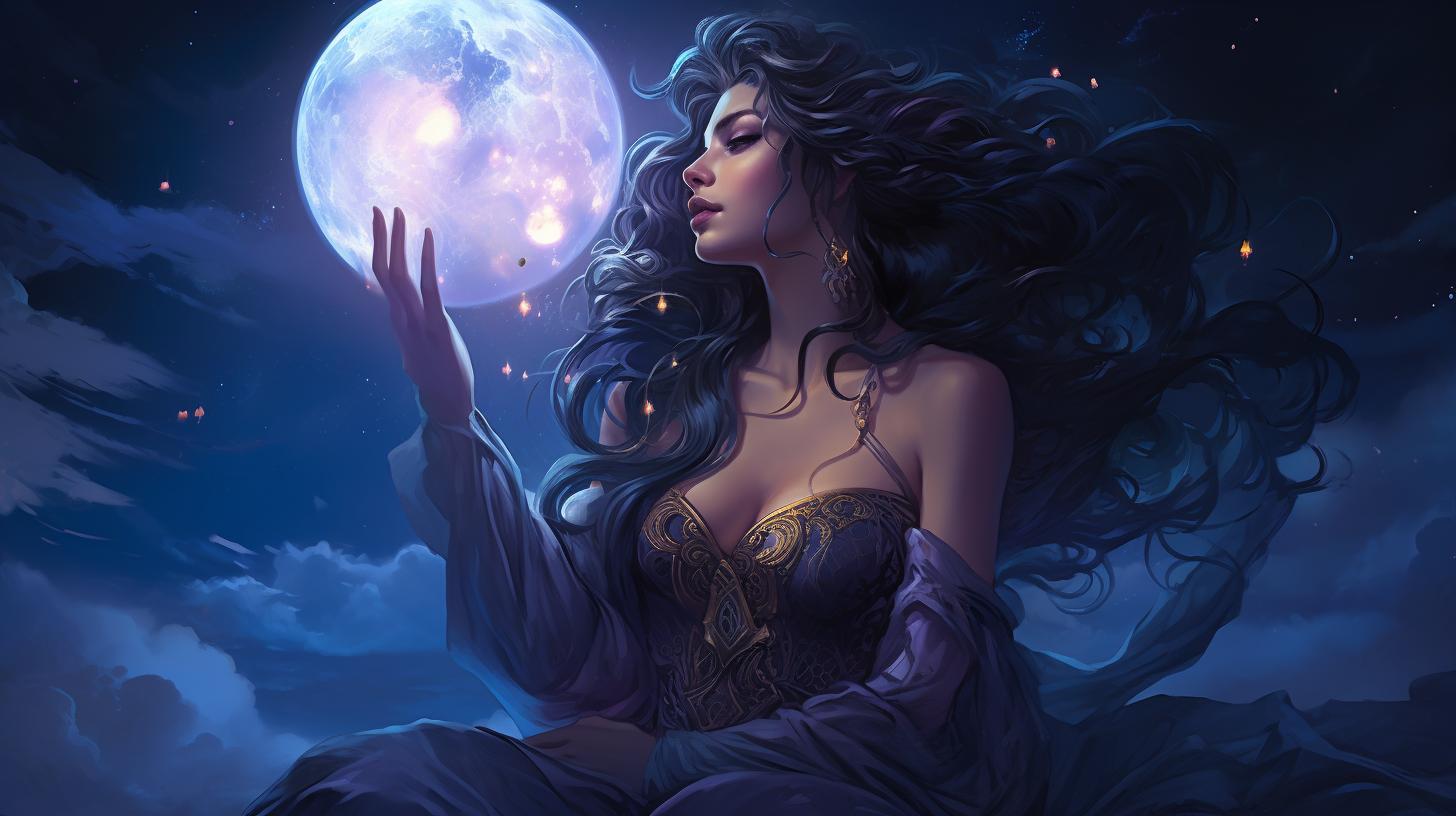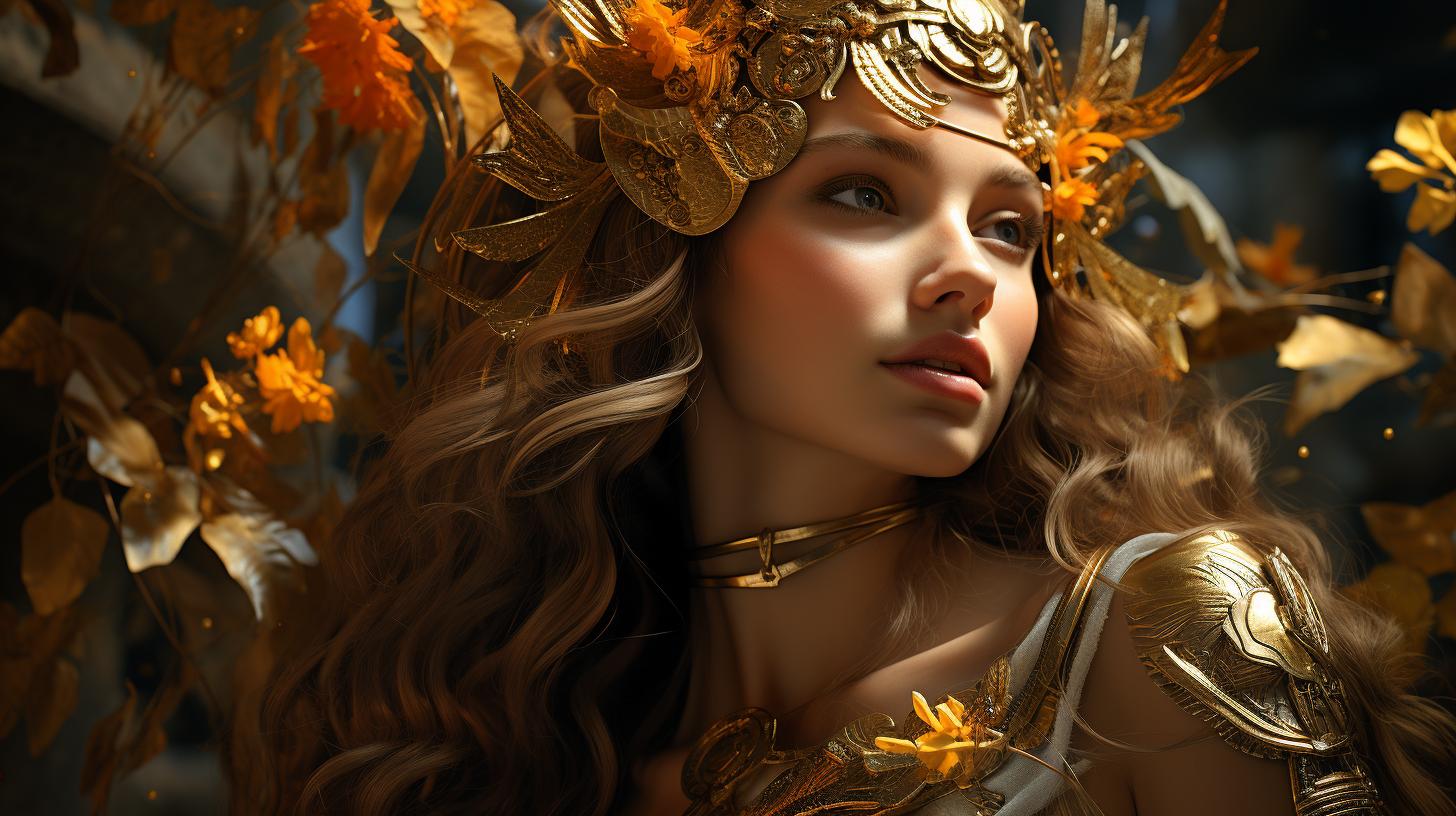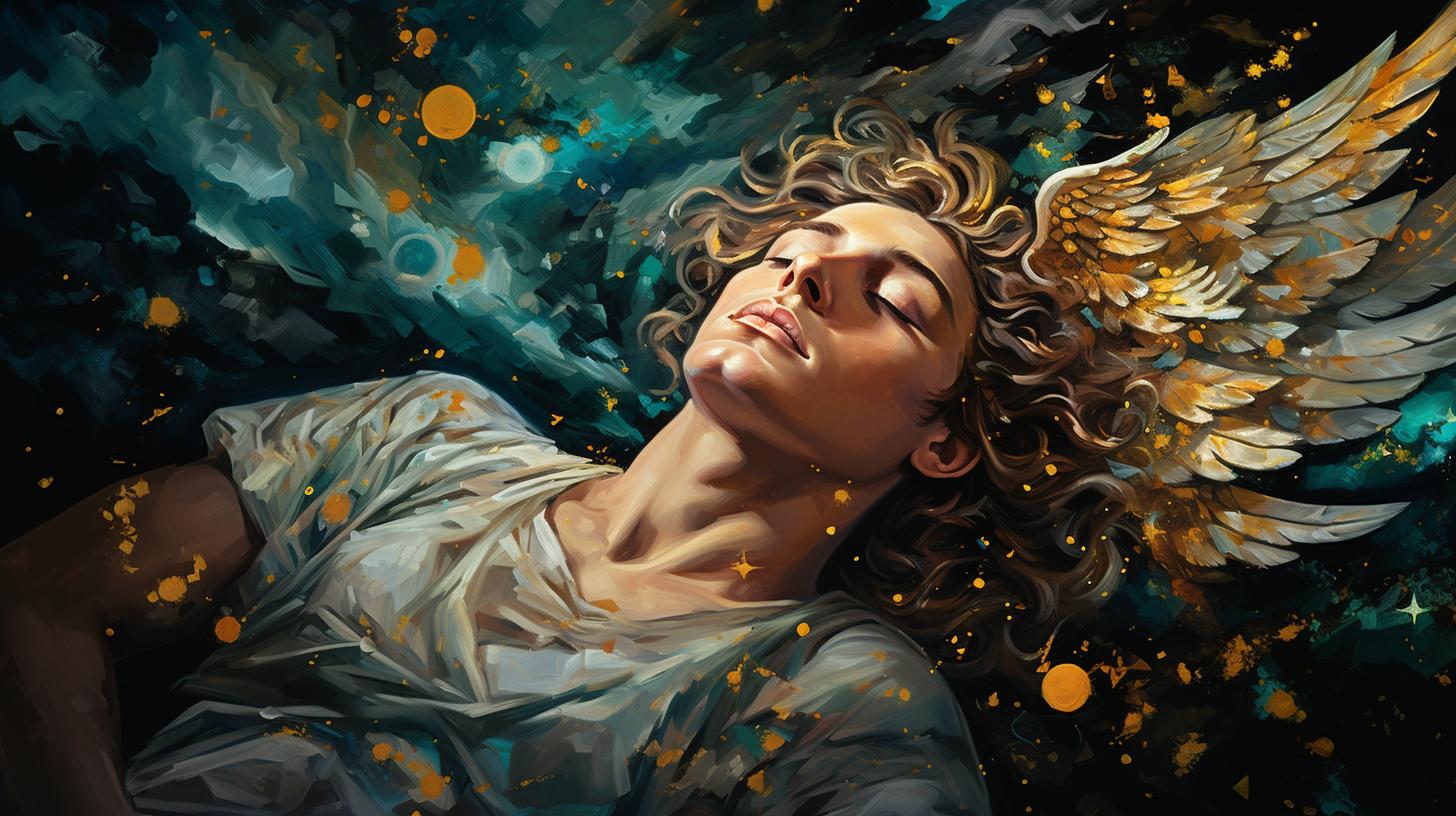Bacchus: The Enchanting God of Wine Unveiled
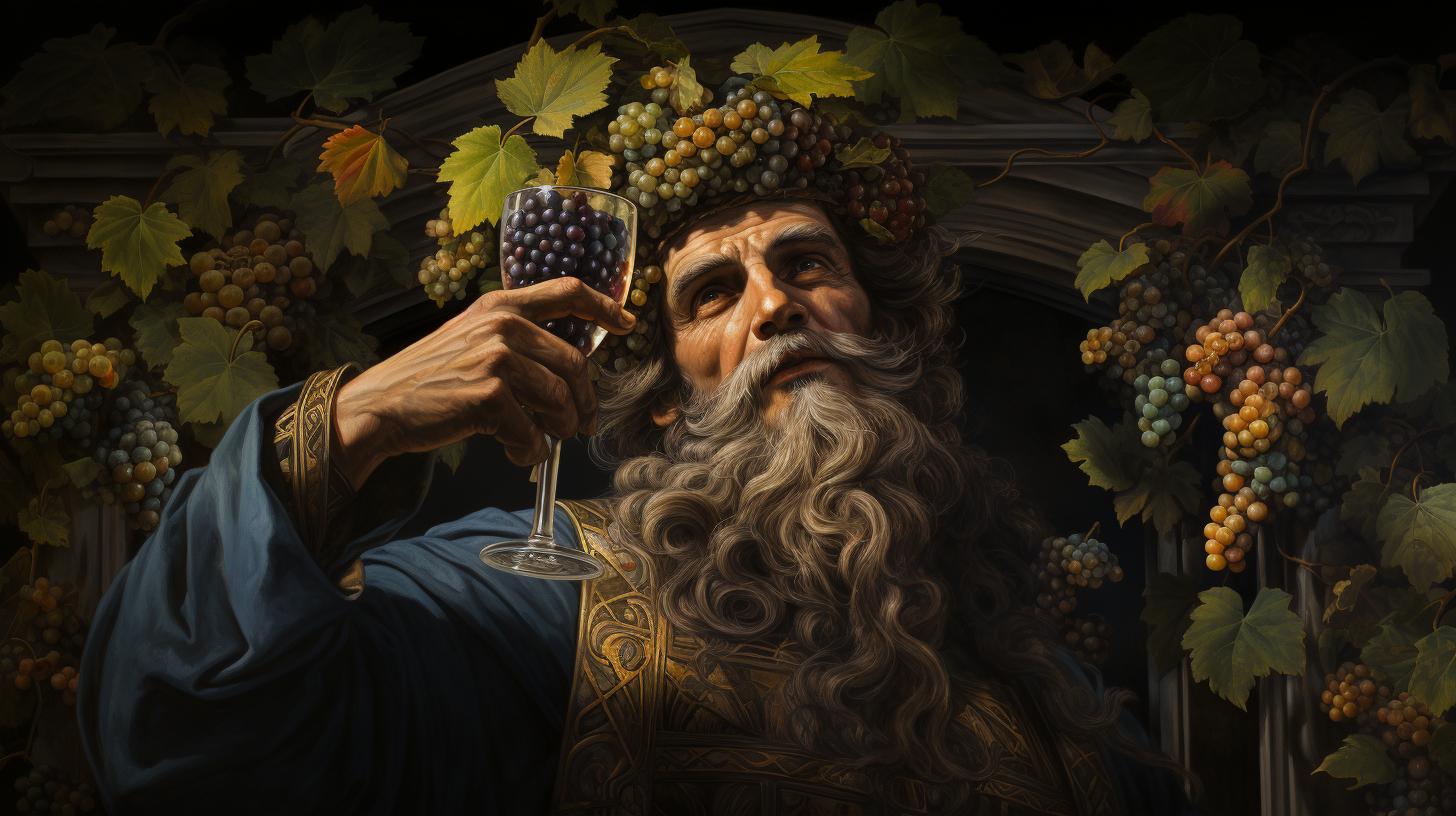
Bacchus, the captivating god of wine, holds a prominent place in Greek mythology. Believed to be the son of Zeus and Semele, Bacchus is credited with introducing mortals to the art of cultivating vineyards and making wine.
Represented as either a youthful athletic figure or a bearded elder, Bacchus is often depicted with clusters of grapes, a wine cup, and an ivy crown. His festivities and rituals, known for their indulgence in intoxication and orgies, have left a lasting impact on ancient cultures.
Despite facing prohibition at times, Bacchus remains revered as one of the most beloved gods in the Roman pantheon.
The Origin of Bacchus: Son of Zeus and Semele
In Greek mythology, Bacchus is revered as the god of wine and vegetation. He is believed to be the son of Zeus, the king of gods, and Semele, a mortal woman.
The story goes that Zeus fell in love with Semele and decided to reveal his true identity to her. However, when Semele requested Zeus to show himself in his divine form, the overwhelming sight led to her demise.
Zeus managed to save their unborn child, Bacchus, by stitching him into his thigh until he was ready to be born.
The unique birth of Bacchus from the thigh of Zeus sets him apart from other gods. It symbolizes the connection between the divine and mortal realms, as well as his association with fertility and rebirth.
Bacchus’ upbringing was entrusted to nymphs, who nurtured him and introduced him to the wonders of nature.
As Bacchus grew older, he embarked on his mission to teach mortals the art of cultivating vineyards and making wine. Through his teachings, he imparted invaluable knowledge on how to tend to grapevines, harvest grapes, and turn them into the intoxicating elixir of wine.
Bacchus’ teachings revolutionized the ancient world, leading to the establishment of vineyards and the widespread consumption of wine.
It is important to note that Bacchus’ origin as the son of Zeus and Semele illustrates his dual nature as both a god and a mortal. This duality is reflected in his portrayal as a youthful athlete or a bearded elder, symbolizing both vitality and wisdom.
Bacchus carries with him the symbols of his power and influence – clusters of grapes, a wine cup, and a crown made of ivy leaves.
Bacchus in Greek Mythology: God of Wine and Vegetation
Bacchus, also known as Dionysus in Greek mythology, is revered as the god of wine and vegetation. His fascinating stories and legends have captivated people throughout history. Let’s explore the various aspects of Bacchus’ character, his teachings to mortals, his representations, and his iconic symbols.
Bacchus’ Teachings to Mortals: Cultivating Vines and Making Wine
Bacchus is credited with teaching mortals the art of cultivating vineyards and crafting wine. His wisdom in viticulture and winemaking has been passed down through generations. With Bacchus’ guidance, humans learned the techniques and processes necessary for nurturing grapevines to produce excellent quality grapes and transforming them into the divine elixir that is wine.
Representations of Bacchus: Youthful Athlete or Bearded Elder
Bacchus is depicted in multiple forms, symbolizing his various attributes and roles. He is often portrayed as a youthful and athletic figure, emphasizing his association with pleasure, celebration, and revelry. On the other hand, Bacchus is also depicted as a wise and bearded elder, representing his connection to maturity, growth, and abundance.
Bacchus’ Iconic Symbols: Grapes, Wine Cup, and Ivy Crown
Symbolism plays a significant role in the representation of Bacchus. His key symbols include clusters of grapes, which represent fertility, abundance, and the raw materials for wine production. Bacchus is also commonly depicted with a wine cup, symbolizing indulgence and the joyous consumption of his beloved creation.
Another notable symbol associated with Bacchus is the ivy crown, a reminder of his association with nature, as ivy is a plant deeply intertwined with vineyards and wine.
Bacchus’ Festivities and Rituals: Embriaguez and Orgies
Bacchus, the god of wine and vegetation, was renowned for his extravagant and decadent celebrations known as Bacchanalian festivities. These events were characterized by their uninhibited nature, often involving excessive drinking, revelry, and orgies.
They were seen as a way to honor Bacchus and indulge in the pleasures of life.
Bacchanalian Celebrations: Bacchus’ Liberating Influence
Bacchanalian celebrations were marked by an atmosphere of liberation where societal norms and inhibitions were cast aside. Participants would gather in secluded areas such as forests or hillsides, escaping the watchful eyes of society.
In these secluded settings, they would engage in excessive drinking and ecstatic dancing, embracing their primal desires and indulging in unbridled pleasure.
The Bacchanalian revelries were seen as a means of commune with nature and the divine, as Bacchus was closely associated with the forces of fertility and the cycles of life. Participants believed that by immersing themselves in the festivities, they would become one with Bacchus and experience a spiritual awakening.
Bacchus and his Companions: Sátiros and Máenades
During these celebrations, Bacchus was often accompanied by a wild entourage of followers, including sátiros and máenades. Sátiros, half-human and half-goat creatures, symbolized untamed desire and uncontrolled passions. They would entertain the revelers with their playful antics and spirited dances, adding to the overall aura of revelry.
Meanwhile, máenades, female devotees of Bacchus, would play a crucial role in these festivities. They were known for their frenzied dancing, tearing animals apart with their bare hands, and engaging in highly provocative and uninhibited behavior.
These expressions of unfiltered passion and primal instinct were believed to bring the revelers closer to the divine essence of Bacchus.
In conclusion, Bacchus’ festivities and rituals were a celebration of life, uninhibited pleasure, and a connection to the primal forces of nature. These indulgent gatherings allowed participants to transcend societal boundaries, embracing their inner desires, and experiencing a sense of liberation.
Through excessive drinking, ecstatic dancing, and passionate encounters, participants sought to capture the spirit of Bacchus and revel in the joyous abandon that his presence brought to their lives.
Bacchus’ Cult and Prohibition: From Greece to Rome
In the ancient world, Bacchus’ cult and worship spread from Greece to Rome, leaving a lasting impact on both cultures. The Romans, who often adopted and adapted various aspects of Greek culture and religion, were enthralled by the allure of Bacchus, the god of wine.
Initially, the Roman authorities viewed Bacchus’ cult with suspicion and skepticism. They were alarmed by the excessive revelry, drunkenness, and sexual liberation that accompanied Bacchus’ festivities and rituals. As a result, the Roman Senate banned the Bacchanalian celebrations in 186 BC, citing concerns about societal order and morality.
However, despite the prohibition, Bacchus’ influence was hard to contain. His cult continued to thrive within secret societies and among those who resisted the Roman authorities’ attempts to suppress it. The allure of Bacchus’ liberating and intoxicating rituals proved irresistible, drawing followers from various social classes, including women, slaves, and even high-ranking officials.
Over time, the Roman perception of Bacchus evolved, and he began to be associated not only with excessive indulgence but also with fertility, abundance, and religious ecstasy. This multifaceted perception allowed the Roman society to embrace Bacchus and incorporate his cult into their religious practices.
Bacchus’ cult played a significant role in Roman religious life, with numerous temples and shrines dedicated to his worship. The Romans recognized Bacchus as a vital deity who bestowed blessings upon the vineyards, ensuring a plentiful harvest and the production of quality wines.
While the early Roman authorities sought to suppress Bacchus’ cult, subsequent emperors embraced and patronized it. The emperors saw Bacchus as a unifying force, capable of bridging the gap between the diverse Roman population, uniting them under the common love and appreciation for wine.
As the Roman Empire expanded, Bacchus’ cult spread throughout the provinces, incorporating local traditions and customs into its celebrations. The worship of Bacchus became an integral part of Roman religious syncretism, merging elements of Greek, Roman, and other indigenous beliefs.
Today, the legacy of Bacchus’ cult and influence on Roman society can still be seen in the reverence for wine and its associated rituals. The god of wine continues to be celebrated in various forms, acknowledging the rich cultural heritage left behind by Bacchus and his followers.
Bacchus in Roman Pantheon: The Popular God of Wine
Bacchus, also known as Dionysus in Greek mythology, holds a prominent place in the Roman pantheon as the god of wine. His intoxicating influence and association with revelry have earned him a significant following throughout ancient Rome and beyond.
The Romans were quick to adopt Bacchus into their religious practices, embracing his teachings on viticulture and winemaking. His role in ensuring the vineyards’ prosperity made him highly respected among the Romans, who attributed the success of their agricultural endeavors to his guidance.
Bacchus, often depicted as an athletic young man or a bearded elder, is typically shown carrying a cluster of grapes, a wine cup, and a crown made of ivy. These symbols highlight his association with wine and the abundant vegetation it relies upon.
In Roman society, Bacchus’ influence extended beyond his agricultural teachings. He became synonymous with pleasure, indulgence, and liberation from societal restraints. Bacchic celebrations known as Bacchanalia were notorious for their wild revelries, including excessive drinking, ecstatic dancing, and uninhibited sexual encounters.
Accompanied by sátiros and máenades, Bacchus led his followers in these frenzied festivities, fueled by the belief that through Bacchus’ intoxicating powers, they could transcend the limitations of everyday life and experience a connection with the divine.
However, Bacchic worship faced periods of prohibition in Rome. The scandalous nature of the Bacchanalia ceremonies, which often spiraled into orgiastic behavior, led the Roman Senate to suppress the cult for a time.
Despite these attempts to curtail his influence, Bacchus’ popularity endured, and his worshippers continued to revere him in secret.
Even today, Bacchus remains a beloved figure in popular culture, with references to his mythology and influence found in literature, art, and even modern celebrations centered around wine and revelry. As the god of wine, Bacchus continues to evoke a sense of joy, excess, and the vibrant spirit of life.
Contemporary Perspectives on Bacchus: Influence and Legacy
Moving into the present day, Bacchus, the god of wine, continues to exert a profound influence on various aspects of society. His rich legacy can be observed in art, literature, and even popular culture.
Artists have long been captivated by Bacchus’ intoxicating allure, depicting him in their masterpieces. Paintings and sculptures featuring Bacchus often capture the essence of revelry, celebrating the pleasures of the vine and the wild abandon associated with his cult.
His image serves as a symbol of merriment and indulgence, evoking a sense of freedom and liberation.
Furthermore, Bacchus’ influence extends beyond the realm of art. His association with wine and its cultural significance has resulted in the establishment and flourishing of numerous vineyards and wineries worldwide.
Wine enthusiasts and connoisseurs look to Bacchus as a symbol of the rich history and craftsmanship that goes into producing the finest vintages.
The traditions and techniques that he allegedly taught mortals have been passed down through generations, ensuring the continued cultivation of grapes and the creation of exquisite wines.
In literature, Bacchus has been a recurring theme, inspiring countless writers to incorporate his intriguing persona into their works. From ancient Greek poems and plays to modern novels and poetry, Bacchus’ portrayal as the god of wine adds depth and complexity to literary narratives.
His mythical and divine attributes intertwine with human experiences, exploring themes of ecstasy, passion, and the search for transcendence.
Moreover, Bacchus’ influence can be seen in popular culture, where his reputation as the god of wine has been embraced and celebrated. The mention of Bacchus instantly evokes images of lively parties, joyous festivities, and uninhibited revelry.
From wine festivals to themed parties, Bacchus’ legacy lives on as people come together to raise a glass in his honor, embracing the spirit of indulgence and camaraderie.
In summary, Bacchus, the god of wine, has left an indelible mark on contemporary society. His influence shines through in art, wine culture, literature, and popular culture, reminding us of the enduring power and allure of this divine figure.
As we continue to appreciate and celebrate wine, we pay homage to Bacchus, a captivating symbol of pleasure, liberation, and the timeless bond between humanity and the fruit of the vine.
…

